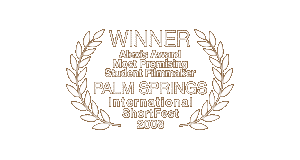DIRECTOR'S STATEMENT
Cancer might have been the first disease I was ever aware of as a child - one of my mother's dear friends had to have a radical mastectomy, and the effects of that and everything that followed in her life have stayed with me. She lived another two decades, changed, but still one of the most "whole" people I ever knew. As a little girl, it was so odd to think that breasts could get cancer. How stupid is that, anyway? You don't even need them for anything! But, as I got older, the whole question of breasts became much more complicated. You don't need them to live, really, but they are so much more than a fashion accessory - they are important in ways that I still don't fully understand. It was still shocking, though, the first time I heard of a woman forgoing a needed mastectomy because she couldn't bear to lose her breasts. Death or breasts? How was that even a question? Once I became aware of that phenomenon, I started hearing about women who stopped short even of chemotherapy, fearing the effects it would have on their bodies and, though it was unstated, their conceptions of themselves as people and as women. I realized at the time that there was something profoundly odd about these situations. As George Braque said, "I do not believe in things. I believe only in their relationships." Once I realized that I wanted to tell a story about a woman who had resigned herself to the loss of a breast but who had forgotten to let those closest to her help, forgotten to include them in a process that, in some ways was worse for them, things went very quickly. I was a first-time writer, though, so the idea and execution morphed repeatedly as I learned how, as a writer/director, to get a script (the original draft that I submitted to AFI's Directing Workshop for Women was written in two and a half days) on the screen. But the essence of the story remained the same. What happens to a woman and those closest to her when the defining aspect of her womanhood is taken away? The Directing Workshop for Women, the AFI faculty, the other directors from my year, and my producers were such a support during this process, which underlined for me that things are almost never experienced alone - we go through life flexing and pulling at the bonds of our various relationships, be they critical and central to our lives or tenuous and relatively unimportant. I realized during the making of the film that I was also doing it for the brave women that signed on to share their stories with me and to support me in telling my story. Even though I didn't set out to write a film specifically to "give back" to the community of cancer survivors, I hope that all of "my" women are proud of the outcome and I hope that families going through the ordeal of cancer will see that they are not alone and that there is support all around - even in the most unlikely of places. - Susan Cohen, July 26, 2008

